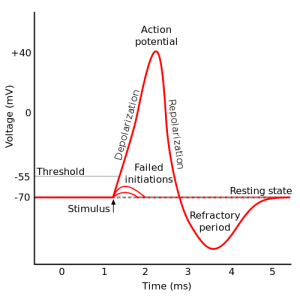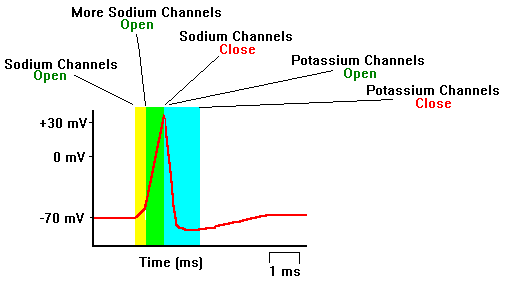An action potential is the process by which a signal travels down an axon. The initiation of an action potential is called “firing.” An action potential is fired after the threshold potential is reached due to stimulation at the dendrites. After reaching threshold potential, rapid depolarization occurs at the start of the axon. Depolarization here causes depolarization in the adjacent region of the axon in a positive feedback loop. In this way, the depolarization proceeds as a wave down the length of the axon, causing neurotransmitter to be released at the terminus of the axon. Repolarization occurs following depolarization and the relative refractory period in which the cell is hyperpolarized inhibits re-firing of the action potential temporarily. An action potential cannot be fired during the absolute refractory period.


(“Action potential,” 2016)
10 thoughts on “Action Potential”